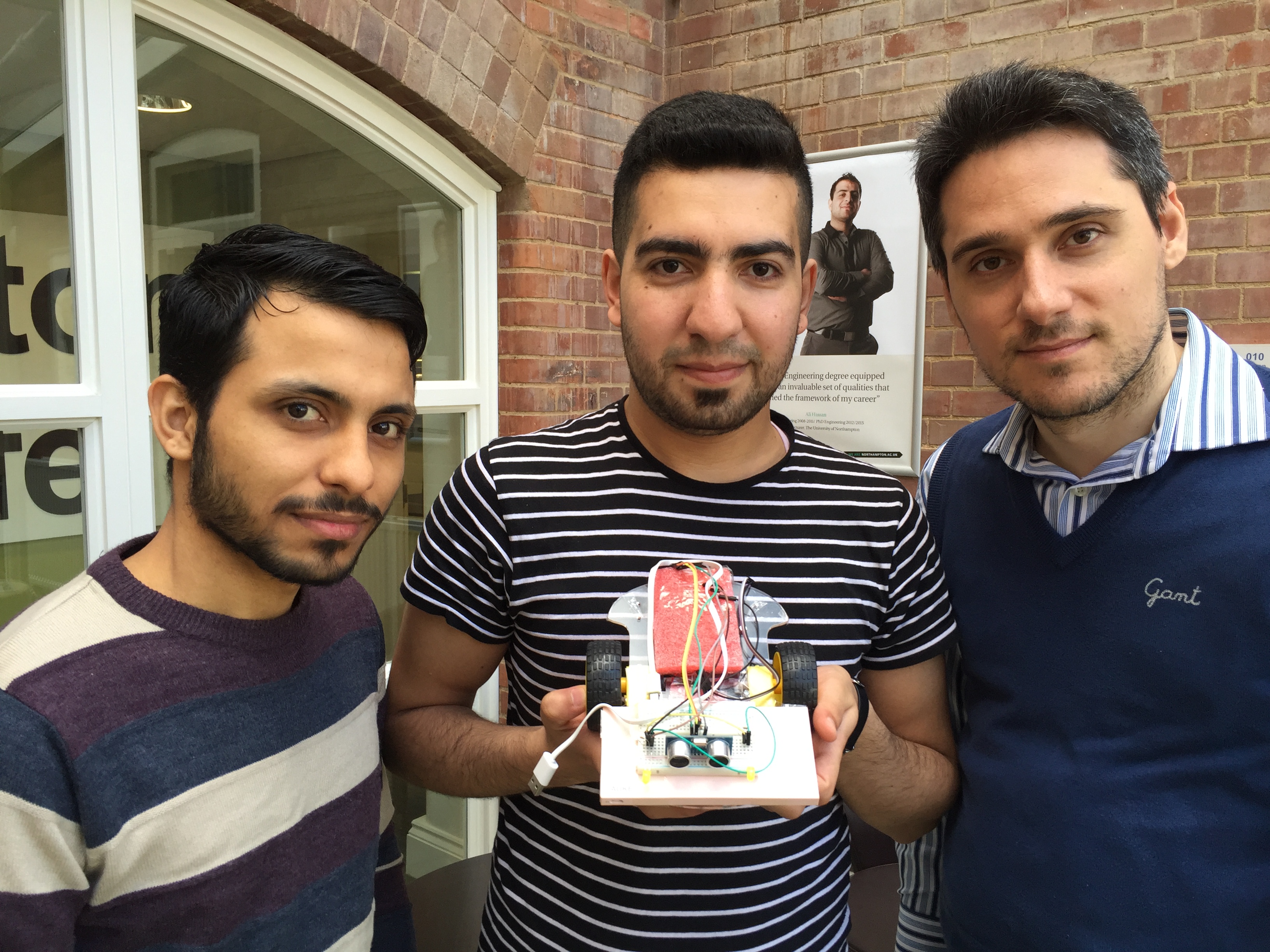From a talking car to autonomous vacuum cleaners – science fiction becomes science fact for Dr Kanakis
Date 24.05.2016
24.05.2016
When Triantafyllos Kanakis was a child, one of the most popular television shows was Knight Rider, which starred David Hasselhoff as the crime fighter with a talking car for a sidekick.
“His character would talk to his car via his wrist watch,” said the Computing Lecturer, who teaches within the University of Northampton’s School of Science and Technology.
“At the time, that just seemed impossible to me, something you could only imagine. But what was then science fiction, is now science fact, as smart watches and wearable internet-connected devices are becoming commonplace.”
The relentless march of technology presents a huge opportunity for students at the University, who belong to the most tech-savvy generation the world has seen – and Dr Kanakis is helping to prepare them for a future where, seemingly, anything is possible.
“Right now, the Internet of Things (IoT) is a huge concept which, simply put, will mean that every device you can think of that can power up could potentially be controlled from the internet via a PC, laptop, smartphone, and so on.
“Therefore, IoT is the foundation of tomorrow’s smart homes, smart offices, smart cities, smart transport – smart everything.
“There’s so much potential to make life easier and improve our world, from health through to public transport.”
To help Computing undergraduates develop their skills in this area, Dr Kanakis and his colleagues from the University’s Computing Society launched an Internet of Things competition.
It challenged students to devise their own IoT project, build a prototype and pitch it as a high-tech business idea to a Dragons’ Den-style panel – all within a week.
On the panel was Dr Christos Tsotskas, from Catapult Transport Systems, who gave the students an overview of a project he’s working on which would see driver-less pods take to streets of Milton Keynes.
Dr Tsotskas also coordinated an ideas session on the business aspects of a hypothetical IoT project.
The contest saw one team developed the concept for a smart mirror, another devised a way to control lights from a mobile phone, but it was an autonomous vacuum cleaner that cleaned up on the day, taking first place.
Here’s a video of the vacuum cleaner, which was developed by students Hasan Abo Dihin, Mohammed Mohammed and Mohammed Al-Khafajiy:
https://www.youtube.com/watch?v=sdsGo2IaVsc&feature=youtu.be
“In a few years’ time, the Internet of Things will change our lives because almost anything will be able to be controlled by the internet to make life easier,” said Mohammed Al-Khafajiy.
“This competition was excellent – it allowed us to develop an idea, build a prototype and also made us think about how we could pitch our concept to a business.
“These are just the sort of skills we need to develop for our future careers.”
The Internet of Things competition was such a success, the Department of Computing, with the support of the Computing Society, plans to repeat it next academic year.
Pictured with the autonomous vacuum cleaner are, from left, Hasan Abo Dihin, Mohammed Al-Khafajiy and Dr Triantafyllos Kanakis.